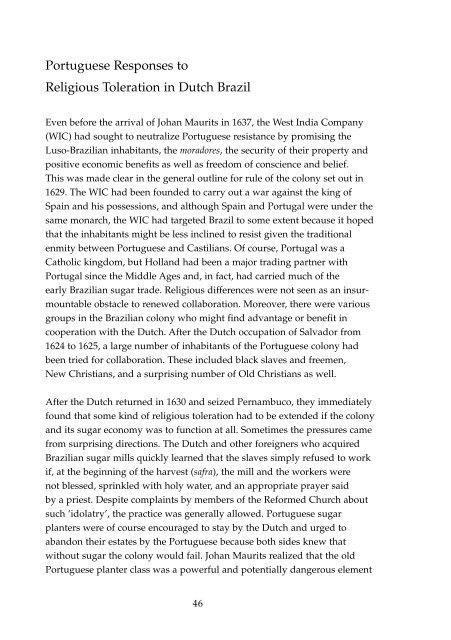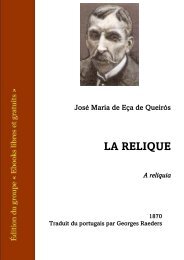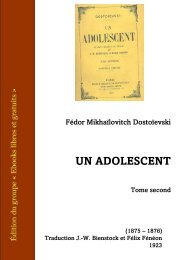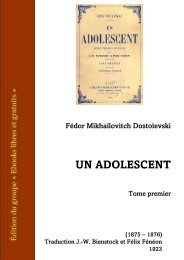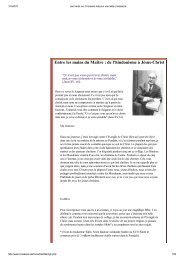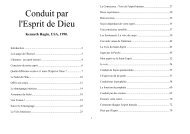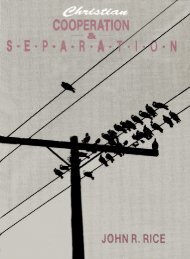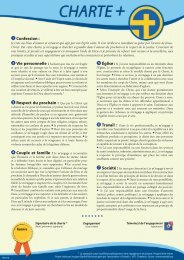The Expansion of tolerance
Create successful ePaper yourself
Turn your PDF publications into a flip-book with our unique Google optimized e-Paper software.
Portuguese Responses to<br />
Religious Toleration in Dutch Brazil<br />
Even before the arrival <strong>of</strong> Johan Maurits in 1637, the West India Company<br />
(WIC) had sought to neutralize Portuguese resistance by promising the<br />
Luso-Brazilian inhabitants, the moradores, the security <strong>of</strong> their property and<br />
positive economic benefits as well as freedom <strong>of</strong> conscience and belief.<br />
This was made clear in the general outline for rule <strong>of</strong> the colony set out in<br />
1629. <strong>The</strong> WIC had been founded to carry out a war against the king <strong>of</strong><br />
Spain and his possessions, and although Spain and Portugal were under the<br />
same monarch, the WIC had targeted Brazil to some extent because it hoped<br />
that the inhabitants might be less inclined to resist given the traditional<br />
enmity between Portuguese and Castilians. Of course, Portugal was a<br />
Catholic kingdom, but Holland had been a major trading partner with<br />
Portugal since the Middle Ages and, in fact, had carried much <strong>of</strong> the<br />
early Brazilian sugar trade. Religious differences were not seen as an insurmountable<br />
obstacle to renewed collaboration. Moreover, there were various<br />
groups in the Brazilian colony who might find advantage or benefit in<br />
cooperation with the Dutch. After the Dutch occupation <strong>of</strong> Salvador from<br />
1624 to 1625, a large number <strong>of</strong> inhabitants <strong>of</strong> the Portuguese colony had<br />
been tried for collaboration. <strong>The</strong>se included black slaves and freemen,<br />
New Christians, and a surprising number <strong>of</strong> Old Christians as well.<br />
After the Dutch returned in 1630 and seized Pernambuco, they immediately<br />
found that some kind <strong>of</strong> religious toleration had to be extended if the colony<br />
and its sugar economy was to function at all. Sometimes the pressures came<br />
from surprising directions. <strong>The</strong> Dutch and other foreigners who acquired<br />
Brazilian sugar mills quickly learned that the slaves simply refused to work<br />
if, at the beginning <strong>of</strong> the harvest (safra), the mill and the workers were<br />
not blessed, sprinkled with holy water, and an appropriate prayer said<br />
by a priest. Despite complaints by members <strong>of</strong> the Reformed Church about<br />
such ‘idolatry’, the practice was generally allowed. Portuguese sugar<br />
planters were <strong>of</strong> course encouraged to stay by the Dutch and urged to<br />
abandon their estates by the Portuguese because both sides knew that<br />
without sugar the colony would fail. Johan Maurits realized that the old<br />
Portuguese planter class was a powerful and potentially dangerous element<br />
46


